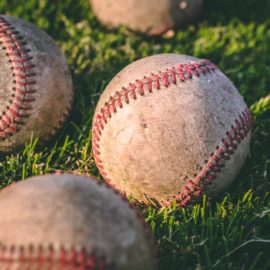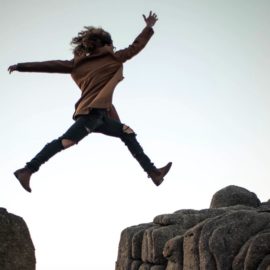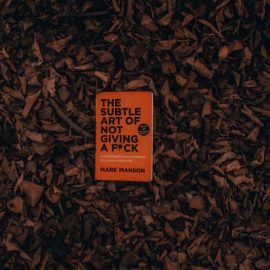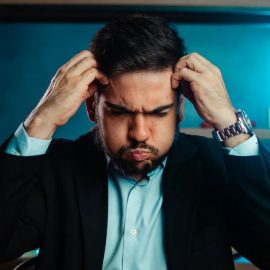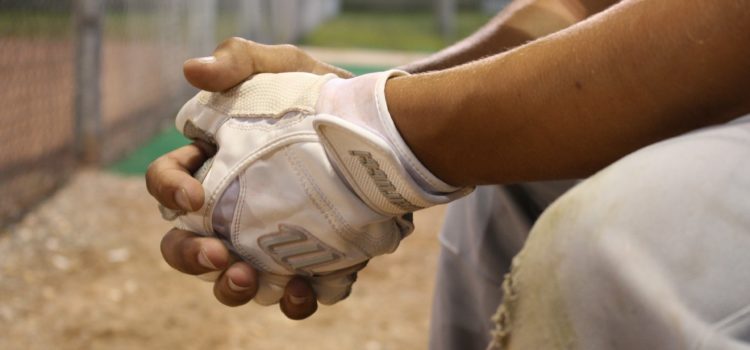
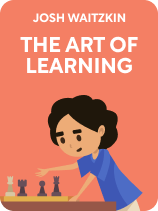
This article is an excerpt from the Shortform book guide to "The Art of Learning" by Josh Waitzkin. Shortform has the world's best summaries and analyses of books you should be reading.
Like this article? Sign up for a free trial here .
What makes a “next-level” athlete? How does mindset affect athletic performance?
Elite athletes didn’t become successful thanks to their physical prowess alone. The greatest Olympic athletes also put work into honing their mindset. According to tai chi champion Josh Waitzkin, one of the keys to developing the athlete mindset is to learn how to handle mistakes while winning. If you dwell on the mistake, you’ll lose your cool and your subsequent performance will suffer.
Here’s how to develop an athlete mindset, according to Waitzkin.
Catch Yourself When You Fall
Josh Waitzkin argues that mistakes are only problematic when they cause you to spiral out of control. In competition, this frequently happens when you make a mistake while winning.
A crucial mistake, he says, can cause you to lose touch with what’s actually going on. Because mistakes feel awful, we’re prone to remaining attached to what we had before the mistake. This can cause you to act desperately, trying to preserve a situation that no longer exists, leading to further mistakes—like a tumbling house of cards.
(Shortform note: In another example from Olympic ice skating, Chinese skater Zhu Yi demonstrates the tragic effects of a downward spiral. After falling in her short program during the team competition, she visibly faltered and finished with a low score. Despite being among the top 25 women’s ice skaters, her mistakes rattled her and led to further mistakes in her next program, where she fell twice. This was momentum accelerating in the wrong direction, with big consequences.)
Waitzkin explains how in chess, the winning player often pressures for a greater lead but can make a mistake that negates his advantage. When this happens, he’ll often lose his cool, which in turn causes him to act incautiously, risking his lead even further. If this spiral continues, the player will lose.
To prevent this collapse, Waitzkin suggests developing a technique that returns you to mindfulness (or “presence”). He offers this rule of thumb: Refresh your mind by moving your body, and refresh your body by mindfully resting. Specifically, he suggests splashing your face with cold water, sprinting a short distance, or taking deep breaths.
(Shortform note: Recovering from errors is hugely important in sports psychology. If an athlete is knocked off-balance, their performance will suffer and they won’t be able to play in the zone. The key is to stop dwelling on the mistake by choosing to ask what you can learn from it, and moving on. So, what Waitzkin says is par for the course in sports psychology—though it’s less recognized in disciplines outside of sports, like writing, chess, teaching, and so on.)
Analyze Your Mistakes
As you develop your skill, you’ll face challenges that are beyond your current abilities. When you fall short, Waitzkin suggests that you pay attention to both the technical and the psychological aspects of your mistakes and use that feedback to improve.
There are two aspects of any weakness, and you need to grow through both:
- Technical errors are mistakes with form: You don’t understand some principle, so you fail to execute the proper techniques. For example, a novice piano player would struggle with complex five-finger chords—she just doesn’t have the technical capacity yet.
- Psychological errors concern your mindset and emotions. Oftentimes, strong negative emotions affect your performance, so you might blunder even though you know the right technique. Think of when professional athletes get frustrated and start to falter—this is an emotional problem, not a technical one.
(Shortform note: In the 2020 Olympics, gymnast Simon Biles experienced psychological difficulties that threw off her technique. Despite wide acclaim as the “GOAT,” or “greatest of all time” in women’s gymnastics, she fell prey to “the twisties,” a phenomenon wherein the gymnast’s mind and body go out of sync. Since gymnasts perform complex, life-risking maneuvers, it’s risky to compete if the twisties come over you; Biles indeed stepped out of the competition. This illustrates how intimately athlete mindset and technique intertwine, and how a steady, self-assured mental stance underpins any successful technical execution.)
Technical errors often entangle with psychological errors, Waitzkin argues. With this in mind, Waitzkin suggests identifying weaknesses by finding connections between your emotional life and your technical mistakes.
To find where you’re slipping up, look at what’s presently meaningful in your life. Ask: “What does my mind keep returning to?” After you identify the emotional theme, look at the technical mistake you are struggling with and see if there is a connection. For example, when Waitzkin was struggling with big life changes in the wake of “Searching for Bobby Fischer,” he also struggled to keep up with positional changes on the chess board.
(Shortform note: The emotional aspects of your skills aren’t always “mistakes” to fix. While Waitzkin was a competitor, plenty of skills are about self-expression instead of winning. Developing as a musician, for example, doesn’t necessitate a constant effort to eliminate your weaknesses. If it were, the variety of music in the world would likely be less diverse. As Waitzkin later says, there’s more than one way to approach any challenge—and while books like The Art of Learning can help, it’s often up to us to create our own paths.)
By analyzing your mistakes, you’ll learn about principles and patterns that you couldn’t previously see. First you understand these new chunks mentally, or in words. But with enough study, Waitzkin explains, you reach an embodied knowing that goes beyond that propositional (thought-based) understanding. In other words, you can feel the principle or technique intuitively.
Waitzkin recommends periodically examining your skill set for weaknesses, as above, to keep your technique effective and your psychology robust. Each time you do this, you improve your intuition for that skill.
| How to Analyze Your Mistakes Waitzkin doesn’t explain how to find the theme of your errors, instead explaining that he spent dozens of hours laboring to understand new chess positions. To analyze your own mistakes, try asking these questions: – What specific technique fell short, and what did your opponent do that surpassed you? – Is there emotional discomfort entangled with your technical error? If so, reflect on where it may be coming from. – What could you have done differently? By spending time in reflection, you’ll figure out what you need to do to improve. |

———End of Preview———
Like what you just read? Read the rest of the world's best book summary and analysis of Josh Waitzkin's "The Art of Learning" at Shortform .
Here's what you'll find in our full The Art of Learning summary :
- Life advice from chess prodigy and tai chi World Champion Josh Waitzkin
- Detailed looks at the psychological and technical sides of skill-building
- How to build any skill from the bottom-up


